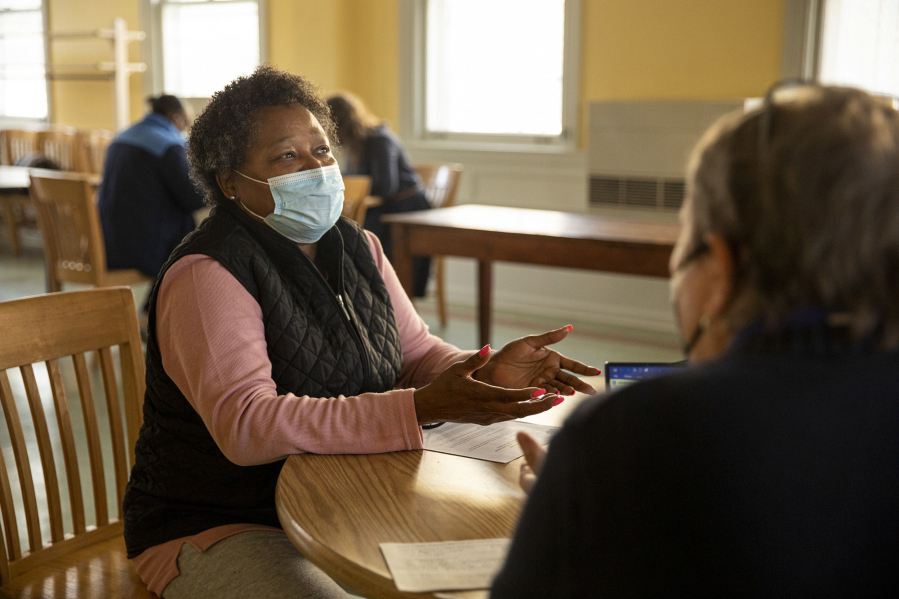PHILADELPHIA — Tyrone Seldon inherited a house from his father, who died in 2018. Since then, he and his wife, Shawn, have been trying to navigate stacks of paperwork to handle the estate on their own, because they can’t afford a lawyer. They got the answers they needed in the social room of a Quaker meetinghouse in the Germantown area of Philadelphia.
“I feel like a weight is lifted off our shoulders,” Shawn said.
On a sunny Saturday morning this month, a handful of Germantown homeowners found solutions both to problems they had been struggling with for years and problems they didn’t know they had.
Tangled titles in Philly threaten more than $1.1 billion in generational wealth
Members of Green Street Monthly Meeting of Friends and the nonprofit legal services agency Philadelphia VIP are helping Black Germantown homeowners create wills, understand their deeds, and get help with tangled titles to help them keep their homes — for free. They referred Tyrone Seldon, a 54-year-old systems engineer, to a program that provides free legal help to clear legal ownership, or title, of properties. He also started the process of creating a will and learned about property tax relief.
It’s all part of Green Street’s racial justice plan to give reparations to Black residents in Germantown — work it hopes will spread to congregations citywide. Before the pandemic, members became aware of just how much money Green Street had in unrestricted reserves, and they wanted to put those funds to good use. The meeting dates to the 1800s, so “we have old money,” said Gabbreell James, a Green Street member for 15 years who is on its reparations committee.



